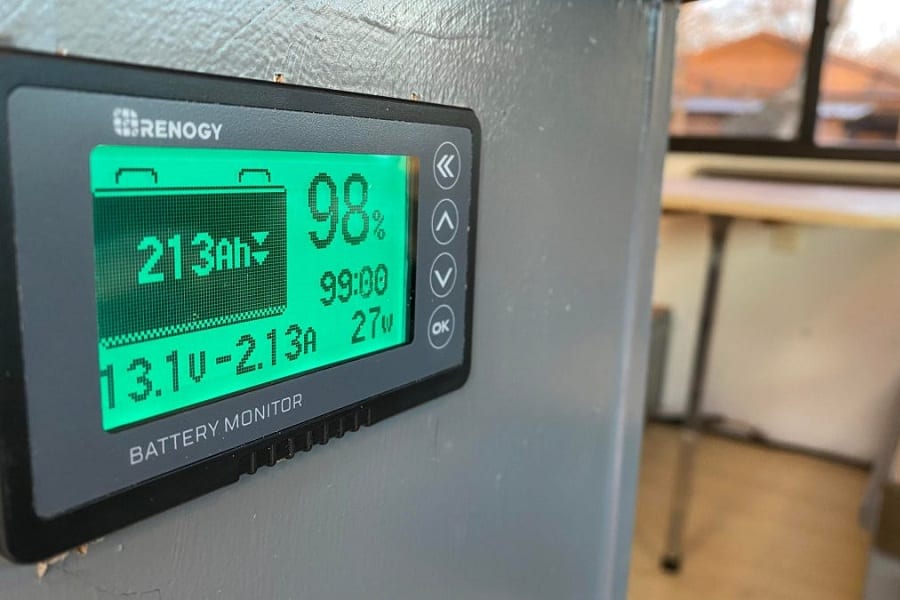When you’re living that RV lifestyle, a good battery is all that stands between an enjoyable adventure on the road and a disappointing one.
Understanding the status of your battery and how all of the electronics and appliances rely on it is essential, and a battery monitor is the best way to do this.
So, what is an RV battery monitor? A battery monitor is used to measure how much energy is stored in your RV battery.
These monitors take various readings including amperage, ampere-hours, percentage left, and voltage, so you get a clear picture of what your power supply is up to.
If you rely on portable power for your motorhome, as most of us do, a good battery management system is essential.
This guide to RV battery monitors will explain exactly what they do to help you determine if it should be on your checklist, and at the very least, give you peace of mind that you’ll never run out of steam when you need it.
Contents
What Is a Battery Monitor?
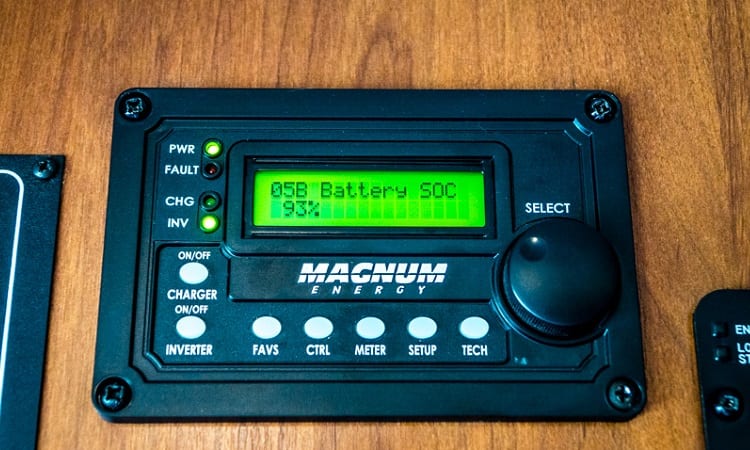
A battery monitor is used in conjunction with your RV’s house or deep cycle battery as a way to monitor how it’s operating.
There are many types of battery monitors and each with varying features, but most offer the ability to read how much current is running in and out of the battery.
Along with this reading, a monitor can also display the strength of the current or amperage, the voltage, and how much current a battery can provide in one hour, also known as the ampere-hours.
More expensive options might also tell you how much of the battery has been used and how much time it has left based on the current load, you can better manage your power supply.
Another important function of a battery monitor is to give you an update on the health of the battery so you know when it’s starting to fail.
The last thing you want when you’re out on the road in your RV is for the battery to stop working, so it tracks things like charging cycles and load to give you a rough idea of the battery’s health and how long it’s likely to last.
Battery monitors are usually sold as standalone devices and can be attached to a battery bank used in your RV.
Sometimes, you might be able to purchase a battery that has this type of device built-in so it can give you all of the necessary information as it’s being used, rather than having to connect one separately.
The Types of Battery Monitors
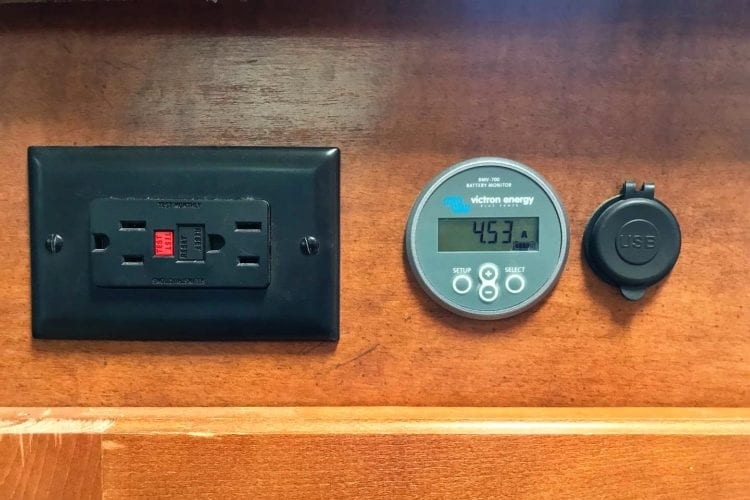
When shopping for an RV battery monitor, you’ll note there are two main types. The voltmeter and the ammeter are the most common types of monitors and each has its own purpose.
What you’ll need to determine is which is better suited to the house battery your RV is using.
A voltmeter is the most common and simplest type of monitor and these are the ones you’ll usually find already installed by the manufacturer.
This works by reading the battery’s current charge so you can get an idea of how many appliances you can plug into it, and whether you need to slow down. When it’s time to recharge the battery, the voltmeter can let you know this easily.
An ammeter, on the other hand, is all about tracking the amperage that leaves the batteries and is considered the more detailed monitor.
This type of monitor is installed in line with the battery from the negative terminal, and as the power passes through it, it keeps track of what’s happening.
With this, you’ll be able to tell a lot more including the level of charge in the battery, how many amp-hours are remaining, and what the amperage and voltage readings are.
How Do They Work?
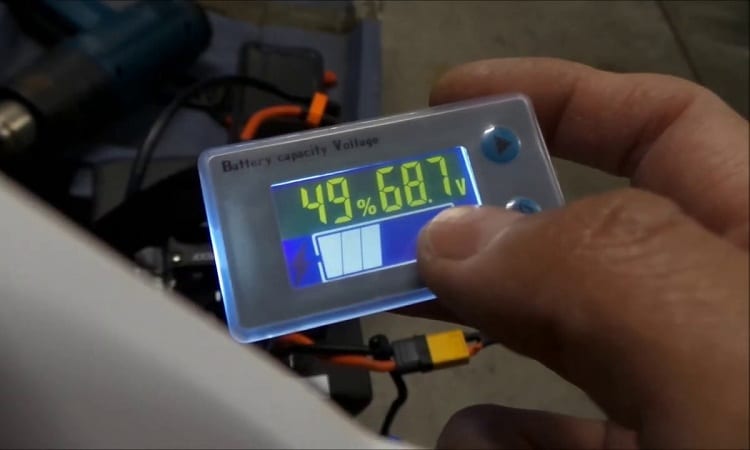
All battery monitors operate differently but most use a device called a ‘shunt’ that the power passes through before leaving the negative terminal.
The shunt is a small metal plate connected to the battery and the electricity will pass through it on its way in as it’s being charged and also on the way out as it’s being used.
The shunt keeps track of the power usage within the battery to give a basic reading of what’s happening using wiring that’s attached to the display.
Some battery monitors are more advanced and feature things like temperature sensors and can be programmed to suit the chemistry of a specific battery, and although more expensive, will give a more accurate reading.
Why Does an RV Need a Battery Monitor?
A healthy battery is critical to your RV lifestyle and without enough power to run what we need, we’re not going to enjoy our trip very much.
However, there are a lot of other reasons for using a battery monitor in your RV so consider what this simple addition can bring to your next on-road adventure.
Keeps the battery in good condition
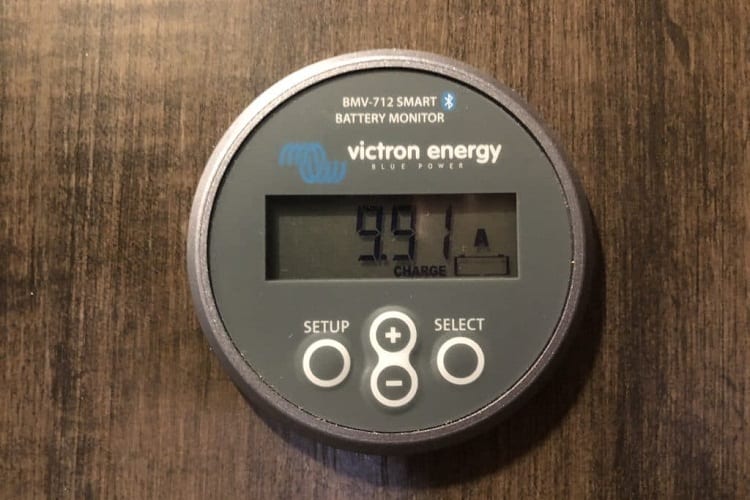
A quality deep cycle battery isn’t cheap and they have to be replaced even more frequently when they haven’t been taken care of. By being able to monitor the health of your battery, you’ll keep it in good condition and avoid overusing it.
Considering how much you spend on a battery, this little device can save you hundreds every couple of years from having to purchase a new one.
Monitors its use
Even though you can use some basic calculations to determine wattage, voltage, ampere-hours and whatever else you need to, it’s confusing trying to keep track of it all. Furthermore, it’s not an exact science and more of a guessing game.
A battery monitor will do as its name suggests and monitor all of this for you so you don’t want to wonder what’s going on or bother trying to calculate the power requirements of what’s plugged in.
Informs you when it needs to be charged
Rather than running out of battery when you really need it because of some poor calculations, a monitor can politely inform you when it’s time to recharge.
There are various ways it can notify you and you can easily see how much time and charge is left for yourself, so you’ll never be caught out again.
Highlights any issues with the battery
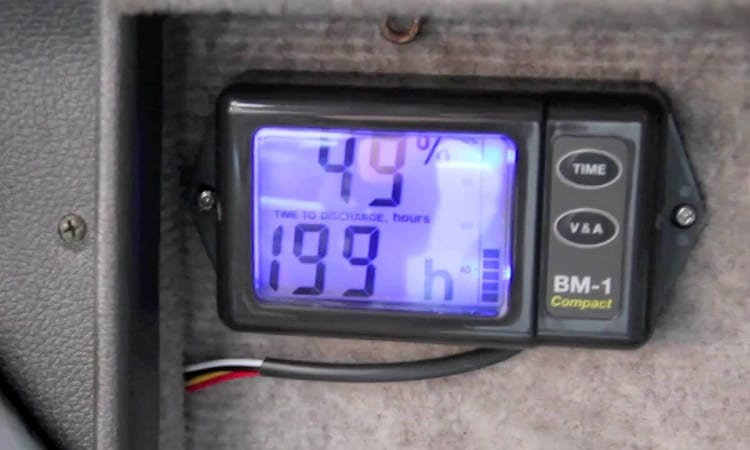
Batteries can be sensitive things and the slightest issue could cause it to break down entirely. Rather than waiting and seeing what will go wrong, monitoring a battery with one of these devices is the easiest way to detect a problem.
You’ll be able to note if it’s discharging faster than usual, if something is drawing too much power, or if it seems to be getting overheated or working slow.
Detecting this early means less chance of the battery being damaged to the point of no return.
Reduces the risk of over-discharging
Although deep cycle batteries were designed to cycle down to a low level, it can still do them a lot of harm to be over-discharged. When you discharge a battery too far and too often, its health will suffer.
Keeping track of these levels with your monitor means you can prevent over-discharging which will give you a few extra years of reliable power from the battery.
Keeps track of solar power
If you use a solar power setup with your house battery, you can use the monitor to see how much power it’s giving you.
As these devices can also track the power coming back into the battery, you’ll see if your panels are doing the job or if there are changes that need to be made to your setup.
How to Choose the Right One
Choosing a battery monitor can be just as overwhelming as choosing the battery itself. Ultimately, the one you need will depend on the battery you use as well as other features you find important.
These are some things you consider when buying an RV battery monitor to make sure you get it right.
Display
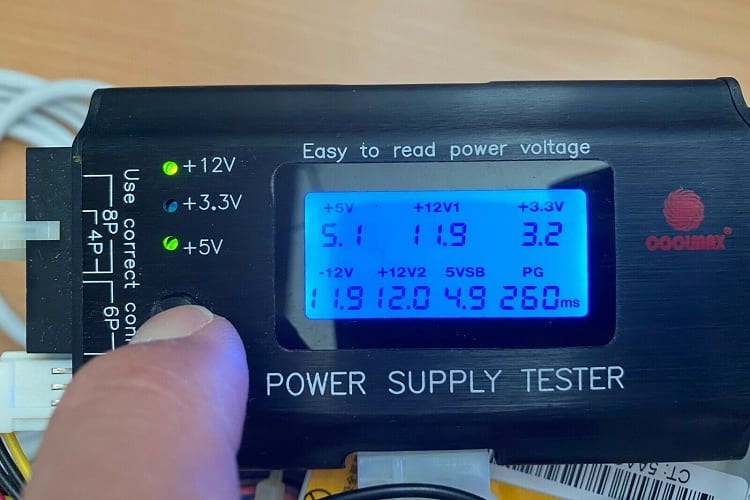
The display of a battery monitor can vary depending on how much you want to see and the type of data being displayed.
Some battery monitors only have a basic LED light to indicate when it’s getting low, and others have detailed LCD screens with all of the information you require.
Capacity
Choosing a battery monitor that matches the battery you have is essential, with most rated by their voltage and the type of battery they work with.
You might only need to monitor a single 12V deep cycle battery or have a few that need monitoring, and you can usually do this with just one device if you’re willing to pay more.
Readings
The type of information a battery monitor displays will be important, with some people wanting only the basics and others requiring advanced readings.
You can choose one that shows Amp-hours, time left, voltage, cranking power, overall health, and more, so think about what matters most to you.
Notifications
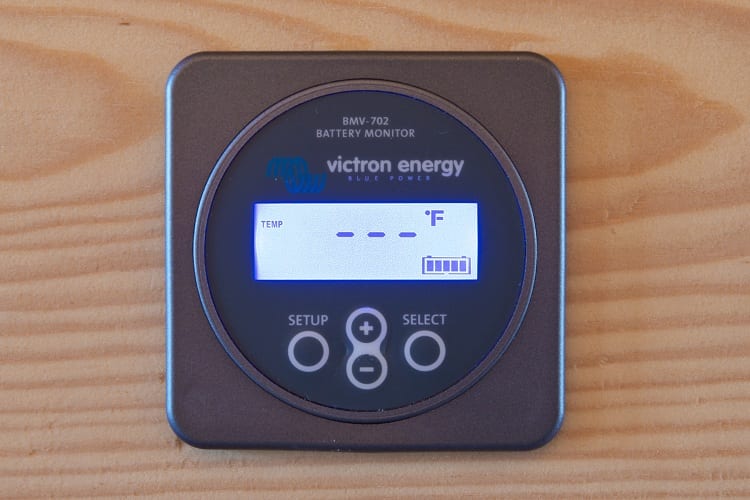
If you’re someone who likes to be notified of an issue without having to go look for it, you’ll want a battery monitor that does just that.
Some of the more modern styles can be synced with your smartphone or send a text or email notification to tell you if the power is running low or there are other issues.
Data storage
To get a true picture of how your battery operates, you don’t just want to look at today’s data.
A battery monitor that allows you to store the daily data for up to a month and even longer can give you a clear idea of how its performing and whether it’s started to slow down or lose functionality over time.
Size
The physical size of the battery monitor is important to ensure that it fits and isn’t going to be too bulky.
These are usually palm-sized devices but can be bigger or smaller depending on their capabilities so make sure you measure up before choosing one.
Price

As with all other RV parts, the price of a battery monitor can range dramatically. The most basic styles cost as little as $20 or as high as a few hundred dollars, so it depends on the features you need.
Peace of Mind With an RV Battery Monitor
An enjoyable adventure with your RV is all about being prepared and when it comes to your portable power supply, this is one area you don’t want to take any chances in.
A simple investment in one of these monitors will take care of that for you and give you all of the information you need so there’s no second-guessing or surprises with your RV’s battery.
Related Questions
The house battery of an RV is your link between camping in the wilderness and the modern world. Without a functioning and full battery, we can’t run out of necessary appliances, so it’s a crucial part of RV ownership.
We’ve answered some FAQs about RV batteries to give you some insight into their role and show you why monitoring them closely is so important.
Are RV Batteries the Same as Car Batteries?
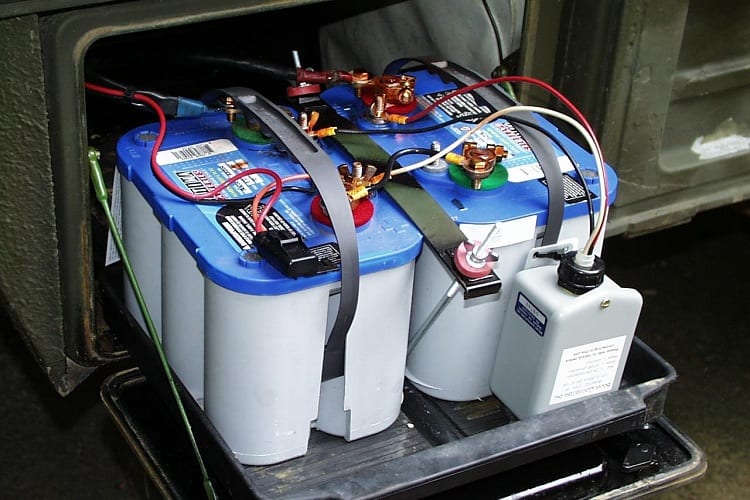
An RV features two main types of batteries: the starting battery used to drive the vehicle and the house battery that provides you with a portable power source to use electronics and appliances.
These are two distinctive types of batteries and each has its role in RV ownership, so understanding the differences is essential.
Do I Need a Deep Cycle Battery For My RV?
Any responsible RV owner will have at least one deep cycle battery available and charged at all times for their convenience.
A deep cycle battery allows you to power up electronics and appliances when you can’t be connected to shore power at a campsite.
Resources:

